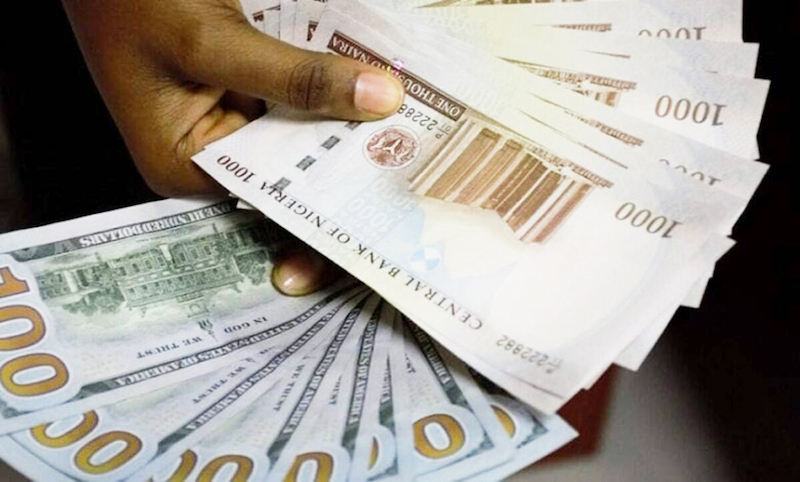Latest Headlines
Travel Agents Optimistic as Airfares on International Flights Drop, Signaling Naira’s Strength against Dollar

Chinedu Eze
Travel agents have expressed optimism and joy that airfares on international destinations are beginning to come down as the appreciation of the Naira over dollar has started reflecting on the International Air Transport Association (IATA) exchange rate, which is the bench mark that foreign airlines use to determine their fares.
The General Managing Director, Flinchglow Holdings Limited and immediate past President of National Association of Nigeria Travel Agencies (NANTA), Mr. Bankole Bernard, told THISDAY in an exclusive telephone interview that airfares are going down because it is a reflection of what is going on in the foreign exchange market.
He said in determining the exchange rate, IATA depended on the Central Bank of Nigeria (CBN) rate.
This, he added, has brought relief stressing however that the cost of tickets is still high because $1,000 ticket is N1.3 million as at Wednesday, March 27, 2024.
Bernard who operates some of the biggest travel agencies in Nigeria, said another relief is that foreign airlines are beginning to open up their lower inventories or cheap fares to Nigerian travellers, which were hitherto closed because of the drastic depreciation of the Naira, exacerbated by the inability of the operators to repatriate their revenues from the country.
He added that even when the fares were high, Nigerians were still travelling, “and now that the fares are coming down more Nigerians will travel. The planes that are leaving Nigeria are always full because Nigerians are passionate about travelling. Now, what we are gaining as travel agents is that we are no more buying tickets from outside because when the fares were high in Nigeria and the lower inventories were open in other countries, we were buying tickets through other countries because they were cheaper there but very costly in Nigeria. Airlines were opening up their lower inventories outside Nigeria and we were buying in foreign currency. Naira was not favourable to the airlines. So, we are getting our market share back. Planes are filled up with passengers every day.”
THISDAY learnt that Qatar Airways is the only airline that most of the time operates two flights a day from the nation’s busiest airport, the Murtala Muhammed International Airport (MMIA), Lagos.
Bernard explained that one of the reasons why airfares in Nigeria are high compared to other countries in West and Central Africa is because the taxes paid by airlines that operate to Nigeria are high.
“Some of the airlines can put two planes in one destinations like Lagos but they like to operate once a day in order to maximise the benefits of flights and government doesn’t seem to border. In addition to that; our charges are very high. In fact, our charges should be some of the highest in the world. They are some of the most expensive around the world,” he said.
According to Bernard, the Directorate of Air Transport Regulations (DATR) domiciled in the Nigeria Civil Aviation Authority (NCAA) is supposed to regulate the fares because airlines ought to update the directorate with their fares.
However, recently the Director General of NCAA, Captain Chris Najomo, said that NCAA held meeting with international operators and urged them to lower their fares.
“Now that naira has started appreciating and the airlines have started introducing their cheap fares, they can now repatriate their revenues by buying dollars through the Investor and Exporter (I and E) window. But airlines pay a lot of charges, which are subsequently paid by the passengers. Cost of ticket comprises of passenger service charge, security charge, which are paid at the two ends of the destination, surcharge and others. In fact, about 50-55 per cent of the ticket is the real money for the airlines but 45 per cent are just taxes.
“These charges can be reduced so that Nigerians can pay less for tickets but government is exploiting our people. The passenger service charge is paid by passengers to enjoy utilities at the airports. But our airport does not have Internet, the toilets are dirty. That is why they are exploiting us,” he said.
Also, the Head, Brand Communications and Marketing, Quantum Travels, Olamide Babayemi, told THISDAY that IATA rate was coming down and airlines have started opening their low inventories more.
“But demand is still a bit lower compared to the same period last year. Last week IATA rate was N1, 600 for $1 but this week, by Wednesday it was N1, 442 per dollar. We are hoping that the reduction will continue so that more people will buy tickets and plan for summer. Naira appreciation will improve people’s purchasing power,” she said.
Since 2021 fares on international route has been fluctuating as Naira’s value nosedived, which made it difficult to have stability in the forex market. Foreign airlines were hard hit because they could not repatriate their earning from Nigeria until recently when some of them at the behest of the CBN were paid.
Remaining revenues of foreign airlines yet to be repatriated are said to be with the commercial banks and with the appreciation of the naira, there is hope that soon airlines would be able to repatriate all their funds and put to an end the controversy that followed the trapped funds since 2021.
Other countries also involved in the trapped fund saga, including Venezuela, Ethiopia and others.
Recently, IATA had revealed that the top five markets with blocked funds (excluding Venezuela) are: Nigeria: $551 million, Pakistan: $225 million, Bangladesh: $208 million, Lebanon: $144 million and Algeria: $140 million.
But with CBN’s intervention since last year, the debts allocated to Nigeria may be debatable because the apex bank had paid the funds in its custody.










